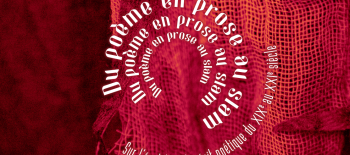The great Polish aphorist Stanisław Jerzy LEC left us 50 years ago. In order to commemorate the anniversary of his passing, we asked a great specialist of Lec, prof. em. Leonard NEUGER (Stockholm University), to write a short piece on the life and works of the writer with a turbulent destiny.
>>> read Leonard Neuger’s text
What’s more, every week, we’ll publish an aphorism by LEC on this page. Don’t miss it!
If the art of conversation was more elevated here
the birth rate would be lower.
Stanisław Jerzy Lec.
In a changing, unstable and uncertain world
by prof. em. Leonard NEUGER (Stockholm University)
Stanisław Jerzy Lec was born on 6 March 1909 in Lviv. He died on 7 May 1966 in Warsaw. He was born in the Austro-Hungarian empire, in the capital of a creation which was strange to say the least – the Kingdom of Galicia and Lodomeria – which in those days was known as Lemberg. In 1918, at the end of the First World War, Lemberg was returned to Poland and was given back its Polish name of Lwów. In 1939, the city was occupied by the Soviet Union and its name was changed to Lvov. Today, the city is located in Ukraine and is called Lviv. Lec died in the Polish People’s Republic, in the capital which was called, and is still called, Warsaw. During the occupation by the Third Reich, the city was nevertheless called Warschau – Lec stayed there for a time. These changes of names, of countries and of political systems are enough to make you feel dizzy, and yet they’re simplified here. And we shouldn’t forget the creation of the state of Israel in 1948… Perhaps it’s wiser simply to say this: Stanisław Jerzy Lec was born and died in a changing, unstable and uncertain world. Hidden behind these words are extreme cruelty, genocide and terror. They form the framework of Lec’s life and those of his contemporaries. The generation of Czesław Miłosz.
Stanisław Jerzy’s mother was called Adela Safir, and his father’s name was Benon de Tusch-Letz. Lec’s Jewish ancestors hailed from Spain and arrived in Poland via the Netherlands and Germany. In the 19th century, the family received from the emperor the title of baron for services to the Austro-Hungarian monarchy. If we were to start writing the introduction of this text afresh, we would write ‘Baron Stanisław Jerzy de Tusch-Letz was born…’etc. During the First World War, the Lec family sought refuge in Vienna; once they had returned to Lwów, Stanisław Jerzy studied at the Evangelische Oberschule before going on to the Kamerling Gymnasium. The language spoken at home was Polish and surely German; at school he spoke German; his milieu was Jewish, Polish and Austrian; his cultural circle – certainly Catholic, Protestant, Jewish and secular. In 1927, he began to study Polish literature and language before studies in law at the famous (Polish) University of Lwów. He completed his studies in 1933, just as Adolf Hitler became chancellor of Germany.
Lec’s work was first published in a literary magazine in 1929. He then made an important decision: he renounced his aristocratic title. Baron de Tusch disappeared forever from his signature. His first verses still bear the German version of his name – Letz. His first books came out in 1933, when he published two tomes of his satirical poems under the Polish spelling of his name – Lec. From then on, he always signed his work using this name, sometimes even reducing his first name to its initials: St. L. But Lec would also talk about the hidden meanings behind his surname. LEC read back to front means the TARGET in Polish (cel); in Hebrew – the CLOWN; in German – the LAST (Letzt). And if we add to this the fact that his mother’s maiden name, Safrin, means WRITER in Hebrew, a multilingual, Polish-German-Hebrew destiny is what escapes from this chaos of epoques, this hotch-potch of names and borders: Lec was meant to be a writer, a satirist (a humourist), a target/victim and the last survivor.
As with many of his generation, Lec had been linked to the communist left before the war, although he never belonged to any party. In 1939, Poland’s eastern territories, including Lwów, were seized by the Soviet Union (which incorporated them) under the terms of the Ribbentrop-Molotov pact. Lec wrote for the Czerwony Sztandar, a communist newspaper then published in Polish, even writing a poem in Stalin’s honour. He was a witness to fear: he experienced the arrests of the left-wing literary elite (Władysław Broniewski, Aleksander Wat, Tadeusz Peiper), the provocations and deporations or, quite simply, sudden disappearances. A period of terror had set in.
In 1941, The Germans took back Lvov. As a Jew, Lec was placed in the labour camp at Tarnopol. He escaped certain death by literally escaping from the grave which he had dug himself. This fortunate incident saved his life, followed later by his perfect knowledge of German. He reached Warsaw (Warschau) and joined the authorities of the communist resistance. His Semitic appearance meant it was impossible to hide him in the city. He was sent to the detachments of fighters in the region of Lublin – anti-Semites, we might add (Lec wrote about this) – alongside whom he fought until the end of the war.
After the war, in 1949, Lec became a press attaché for the Mission of the Polish Republic in Vienna, in the occupied Soviet zone. It’s hard to think of a better candidate for this post, with his excellent knowledge of German, ties to the city (dating back to childhood) a good education, excellent manners, a commitment to left-wing activism since before the war broke out and a good reputation as a poet and satirist, enhanced by the fact that, at the time, (1946–1950) he was in the process of editing four poetical and satirical tomes. It’s wise, however, to take a closer look at this. A power struggle was underway in the communist camp and Lec’s intellectual training as a poet and his writing style were rejected in favour of blind obedience and socialist realism. The poetical and satirical pamphlets which he published at that time met with severe criticism. As for the rest, one should note that Vienna under occupation bore no resemblance to pre-war Vienna and Lec himself was not the man he had been. Indeed, he was the last survivor… In 1950, when he was no longer working at the Mission, Lec and his family decided to move to Israel, which communist Poland felt to be tantamount to betrayal and desertion. Sadly, the poet never managed to feel at home there. In 1952, he took the dramatic decision to return to Poland. He had left Poland for Vienna at a time when the political regime was right in the middle of a transformation. Now, it was to Stalinist Poland that he returned. People were afraid to meet him, he was ostracised, no-one was allowed to publish his work and his books were withdrawn from libraries. He translated a little (amongst other things Mother Courage by Bertolt Brecht and the poems of Paul Celan). He tried to repent.
Readers had to wait until 1956 before his new collection of poetry came out, even if the ban on his work being published in the literary press had been lifted in 1955. The last ten years of his life were filled with literary work: he wrote poems, practised satire, translated. In 1955, the weekly Nowa Kultura published 15 aphorisms by Lec. No-one remembered that, back in 1949, he had already published four in the weekly Szpilki. Between 1955 and his death in 1966, Lec found a home for his Unkempt Thoughts in the pages of various newspapers, especially Przegląd kulturalny, Świat and Dialog. Alongside this, from 1957, they were published as volumes, in an ever-increasing number of editions, by Krakow Literary Publications (1957, 1959, 1964). The anti-Semitic campaign of 1968 meant that the next edition of Unkempt Thoughts only came out in 1972. The 1957 edition contained 193 aphorisms, the 1991 edition 2160, and the 1996 edition 2605. In the most complete edition, published by Noir sur Blanc in 2006, we can count 4711 aphorisms, thanks to the great Lec specialist, Lidia Kośka, who devoted a monograph to him. She had the opportunity to read several aphorisms which had not been published, written on sheets of paper or even serviettes. Some had fallen foul of the censors, others hadn’t even got that far for obvious reasons, but some may have been waiting to be published or else formed part of the poet’s reserve.
Lec called his works thoughts, phrases and – rarely – aphorisms. He may not have wished to impose upon them the precise form of the aphorism, with its ancient roots, which in Hippocrates’ collection of medical rules, called his Aphorismoi, signified ‘differentiation’, or ‘definition’. He did not want to become part of the tradition of ancient or French sentences and maxims with which his work had little in common, save perhaps for their elegance. The German language tradition is closer to Lec, particularly the works of Karl Kraus. In his Unkempt Thoughts, the writer is giving us a clear sign when, asked how long his thoughts needed to take shape, he answers ‘six thousand years’. It’s a clear clin d’oeil in reference to the Jewish calendar. Links with Hebraic thought are legion in Lec’s oeuvre. There are some similarities to Polish aphoristic texts but they are negligeable. Even the title Unkempt Thoughts is a reference to a writer close to Lec, Heinrich Heine, who wrote ironically about “Schön gekämmte, friesierte Gedanken” (“beautifully combed and coiffed thoughts”).
The Unkempt Thoughts were hugely successful in Poland during Lec’s lifetime. They were mostly interpreted from a political angle, as an expression of opposition to the communist regime. They were also successful outside Poland, especially in Germany. Moreover, they are unquestionably masterpieces of Polish literature, a master class in composing aphorisms. Lec, there can be no doubt, delighted in this glory and popularity….but it also caused him a certain amount of sadness, because Lec saw himself first and foremost as a poet. He was a talented poet, but his Unkempt Thoughts are truly first-rate and have retained their freshness and their traps. They delve deep into the stereotypes linked to language, grand statements, myths and automatisms, however innocent they may claim to be. And then they suddenly shatter this innocence with such lightning lucidity and with such spirit that one could almost find them frightening. And even if they do still bear an anti-political charge, what we can see even more clearly is their profoundly philosophical dimension.
(a big thank you goes out to Mrs. Lidia KOŚKA and Mr. Tomasz LEC, who helped us with the pictures of Stanisław Jerzy Lec)



